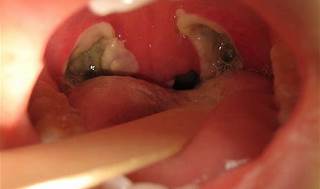A nurse is planning care for an adolescent following repair of Meckel Diverticulum.Which of the following actions should the nurse include in the plan of care?
Administer total parenteral nutrition
Initiate long term antibiotic therapy
Maintain an Ng tube for decompression
Teach the client about ostomy care
The Correct Answer is C
Choice A rationale
Administering total parenteral nutrition is not typically necessary following repair of Meckel’s Diverticulum. The patient is usually able to resume normal eating habits after surgery.
Choice B rationale
Long-term antibiotic therapy is not typically required following repair of Meckel’s Diverticulum. Antibiotics may be used in the short term to prevent infection, but long-term use is not usually necessary.
Choice C rationale
Maintaining an NG tube for decompression is a common part of care following abdominal surgery, including repair of Meckel’s Diverticulum. This helps to relieve pressure and allow the intestines to rest and heal.
Choice D rationale
Teaching the client about ostomy care is not typically necessary following repair of Meckel’s Diverticulum, as an ostomy is not usually required.
Nursing Test Bank
Naxlex Comprehensive Predictor Exams
Related Questions
Correct Answer is A
Explanation
Choice A rationale
A child who has a fractured left femur would be an appropriate roommate for a preschooler following Wilms’ tumor removal. This child does not have a contagious condition that would pose a risk to the preschooler.
Choice B rationale
A child who has cellulitis of the right radius would not be an appropriate roommate for a preschooler following Wilms’ tumor removal. Cellulitis is a bacterial skin infection and could potentially pose a risk of infection to the preschooler, who may have a compromised immune system after surgery.
Choice C rationale
A child who has impetigo would not be an appropriate roommate for a preschooler following Wilms’ tumor removal. Impetigo is a highly contagious skin infection and could pose a risk of infection to the preschooler.
Choice D rationale
A child who has viral pneumonia would not be an appropriate roommate for a preschooler following Wilms’ tumor removal. Pneumonia is a contagious respiratory infection and could pose a risk to the preschooler, especially if their immune system is compromised after surgery.
Correct Answer is ["A"]
Explanation

The correct answer is choice a. Discourage the child from coughing.
Choice A rationale:
Discouraging the child from coughing is important because coughing can dislodge clots and cause bleeding at the surgical site, which is a common complication after a tonsillectomy.
Choice B rationale:
Providing cranberry juice to the child is not recommended because acidic juices can irritate the throat and cause discomfort or pain.
Choice C rationale:
Maintaining the child in a supine position is not ideal as it can increase the risk of aspiration. Instead, the child should be positioned on their side or with the head elevated to facilitate drainage and reduce the risk of aspiration.
Choice D rationale:
Administering an analgesic to the child on a scheduled basis is important for pain management, but it is not the most immediate action to take one hour postoperatively. Pain management should be part of the overall care plan.
Whether you are a student looking to ace your exams or a practicing nurse seeking to enhance your expertise , our nursing education contents will empower you with the confidence and competence to make a difference in the lives of patients and become a respected leader in the healthcare field.
Visit Naxlex, invest in your future and unlock endless possibilities with our unparalleled nursing education contents today
Report Wrong Answer on the Current Question
Do you disagree with the answer? If yes, what is your expected answer? Explain.
Kindly be descriptive with the issue you are facing.
